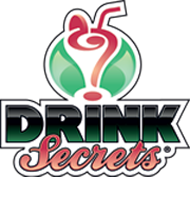Energy Drink
Energy drink.
A special kind of soft drink specifically made to increase the mental and physical performance of the consumer with the help of caffeine, sugar, vitamins and different herbs that adds as a supplement to the caffeine. Besides caffeine, vitamin B and above mentioned herbs, a lot of energy drinks also use guarana, acai and taurine, an organic acid that, even though it is an ingredient in many energy drinks, has never been proven to have any energy-giving effects.
The effects of energy drinks has been under a lot of study and two reports says that energy drinks provide a significant improvement in mental, cognitive and upper body muscle performance. However, if consumed in too large amounts, most energy drinks can induce mild euphoria, agitation, irritability and insomnia. It should be known that a single can of energy drink in a day will not give you the abovementioned symptoms, but it is enough that you only drink two in a single day to receive these undesired effects, especially if the chosen energy drink contains Ginseng, which adds to the effect of caffeine.
The history of energy drinks date as far back as 1901 in Ireland, where the first energy drink “Irn-Bru” , pronounced iron brew, was made. It is more widely known that the Japanese were the first ones to start making energy drinks in a similar way they are made today, although in Japan today they are sold in brown glass medicine bottles and are marketed to the average joe, or as they are called in Japan, salaryman.
With alcohol being classed as a depressant and energy drinks being classed as a stimulant, mixing these two can actually remove or lighten some of the adverse effects of being hung over, such as easen the headache and dizziness. However, mixing energy drinks with alcohol is not good since you cant feel as well how much you have been drinking as you do without mixing the alcohol with energy drinks, this often leads to people drinking too much and suffer from different alcohol-related consequences.




























































